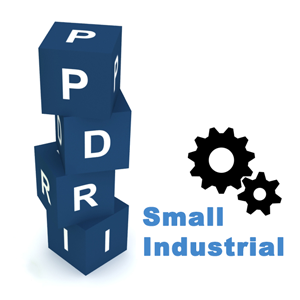COURSE OUTLINE
Project Definition Rating Index (PDRI) for Small Industrial Projects (VAL-105)

Summary
This one-day course addresses the scope definition needs of project leaders responsible for small, plant-based projects (less than US$10 million) that account for more than 70% of completed projects. Participants will learn how to effectively use CII’s Project Definition Rating Index (PDRI) for Small Industrial Projects and dramatically improve project scope definition.
The unique planning needs of small projects addressed in this course include:
- Scope definition in rapid, concurrent planning phases
- Repetitive program issues
- Renovation & revamp issues
- Planning for execution within a shutdown/turnaround
Participants will benefit from lessons learned on how to use PDRI to achieve increased team alignment, identify gaps and risks, and objectively measure the degree of scope definition. Recommended facilitation techniques specific to small projects are explained, as well as roles, responsibilities and logistics of conducting an effective PDRI session.
An interactive “Mock PDRI” based on a case study will provide all participants the opportunity to apply the course learning and gain first-hand experience in conducting a PDRI session for a small project.
Learning Objectives
At the end of this course, participants will be able to:
- Explain the PDRI methodology and benefits to their project organization
- Recommend when a PDRI session should be conducted for small projects
- Understand the roles, responsibilities and logistics for a PDRI session
- Understand how to fully utilize findings from a PDRI session to improve project performance
- Set expectations with senior stakeholders of how PDRI for Small Industrial Projects will improve project performance
Who should attend this course?
This course targets project stakeholders responsible for both process and non-process related small projects. Recommended attendees include Program Managers, Project Managers, Plant Managers, Design Managers, Designers, Construction Managers, Technical Managers, Project Estimators and Schedulers Business Unit leaders, Site Supervisors, Project Finance personnel, Operations leaders, Contract Administrators, Maintenance Managers, Risk specialists, Procurement professionals, Materials Supervisors, Quality specialists, Legal, Project Controls analysts, Engineers and Planners, Information Commercial Managers, Cost Engineers, Quantity Surveyors, Health & Safety professionals and others.
Course Outline
Introduction
- Overview of course objectives and agenda
- Introduction to CII’s front end planning process and its application for small projects
- Relationship between scope definition and project performance
- Interactive exercise – participants will complete a poll on the level of maturity of scope definition in their organization.
- Introduction to the Project Definition Rating Index (PDRI) and its role in improving project performance
PDRI Methodology
- Introduction to front end planning
- Structure of PDRI
- PDRI industrial selection guide
- Application during front end planning of small projects
- The assessment process
- Scoring system
- Measuring progress of scope definition
PDRI for Small Projects Templates
- Walkthrough of the PDRI for Small Projects template
- Basis of project decision
- Basis of design
- Execution approach
- Addressing specific scope definition issues for
- Repetitive programs
- Renovation & revamp projects
- Non-process projects
- Planning for execution within a shutdown/turnaround
Preparing for a PDRI Session
- Who should attend?
- Specific benefits for
- Business unit leaders
- Cost estimators
- Scheduler/planners
- Risk managers
- Engineering contractors and consultants
- Shutdown/turnaround managers
- Procurement managers
- Session roles, responsibilities and logistics
- Characteristics of great PDRI facilitators
- Background materials to provide a facilitator preparing for a PDRI session
- Interactive exercise – using a case study, participants will apply the fundamentals of risk management to identify risks in a small industrial project and prepare for a PDRI session.
Conducting the PDRI Session
- Recommended techniques to ensure consistency in the element review process
- Using the low definition element list
- Creating effective action items
- Comparison of total score to industry and internal benchmarks
- Putting the final PDRI summary report to use
- Importance of a debrief session
- Sharing PDRI results with senior stakeholders
- Interactive exercise – using a small industrial project case study, the group will participate in a Mock PDRI session. Each participant will be assigned a role from the project team and provided with behavior hints. The instructor will facilitate the Mock PDRI session. The group will assess a range of elements and practice behaviors that encourage open and honest communication, identifying gaps, capturing relevant comments, and assigning a definition level
Lessons Learned on effective use of PDRI
- Using an early reviews to increase project team alignment and understanding business objectives
- Using PDRI to increase alignment between owners and contractors
- Leveraging PDRI to communicate known risks when a project handover occurs (e.g. project execution or construction team)
- Making PDRI element descriptions fit-for-purpose for your organization
- Using PDRI data to support continuous improvement in front end planning practices
Summary
- Revisit the group’s poll results on organizational maturity of scope definition
- Review how PDRI can be applied to improve scope definition and project performance
- Discuss important “take-aways”
- Conduct course evaluation
